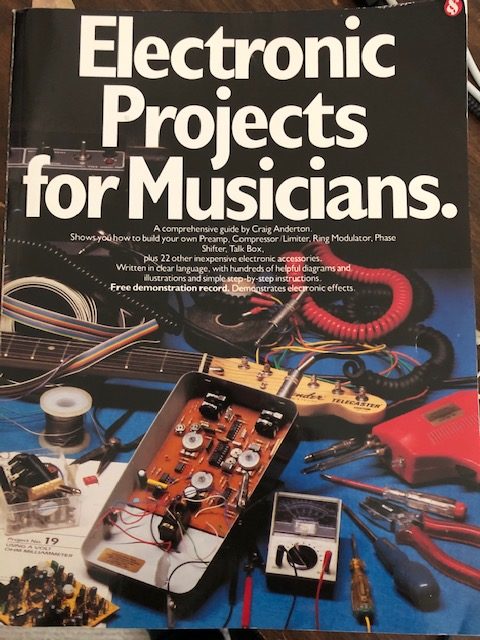
Discussion with legendary music technology expert Craig Anderton. His book “Electronic Projects for Musicians” has launched the careers of several boutique pedal builders.
The intro and outro music is written and performed by Craig.
Interviews with soundmen, worship leaders and worship team members.

Today’s interview is with keyboardist, backing vocalist and accordion(!) player for Ann Wilson (of Heart fame). I had the pleasure of meeting up with Daniel and the band backstage before an amazing concert opening up for Cheap Trick. Daniel talks about life as a touring musician, equipment (he uses a Sonic Nuance MDI), influences and much more.


I met Devin several months ago while on vacation in Hawaii. He is one of those people you just instantly like. I had a chance to watch him in action at church as well as listen to his original tunes and can attest to his talents – he is a gifted singer, songwriter, guitarist, arranger and band leader. In this interview we discuss many topics including his signing, guitar work and awkwardness in meeting a certain celebrity surfer…
Enjoy!
Ted
P.S. Check out Devin’s Apple Music page
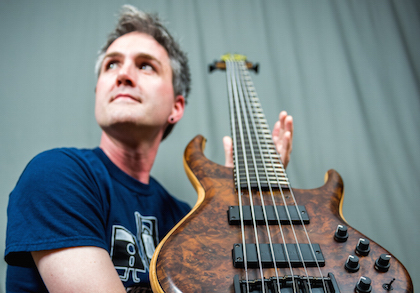
Sean is the owner of Fairchild Sound and a fantastic professional bassist*. We discuss many aspects of being a professional musician including people skills, technical ability, tone, singing while playing, equipment as well as many other topics. I’m sure you will find this interview engaging and worth your time
*Intro music “Bleed the Feeling Full” by Sean’s band Combinator. Used by permission.
Useful info:
Fairchild Sound
Combinator’s Website
Sean’s YouTube Channel
Sean’s email address: Spfairchild@gmail.com


Rick Turner is a legendary luthier. He has built instruments for many musicians including Jerry Garcia and Phil Lesh (The Grateful Dead), John Paul Jones (Led Zeppelin), Lindsey Buckingham & John McVie (Fleetwood Mac), Stanley Clarke and Carlos Santana (to name a few). For this interview we focused on what I consider to be the most gorgeous basses I have ever seen by my favorite bassist, the late John Entwistle of the Who. Rick discusses the origin of the “Explorer” Alembics he built for John and gives quite a bit of insight.
Some of the topics discussed are piezo & magnetic pickups, woods, carbon fiber as well as some rock & roll history (including what Elton John brought on tour with a custom Anvil case, what instrument John McVie used for “The Chain”).
John Entwistle has done more for me as a bassist in terms of inspiration than any other. I consider this interview a small way to pay back him and Rick for being a part of my musical upbringing. I hope you enjoy the audio interview below.
Thanks,
Ted – Sonic Nuance Electronics

In this engaging interview, Worship Pastor Jacob LeFavour from Las Vegas, Nevada (aka “Sin City”) discusses: planning a worship set, dynamics, motivating teams, selecting songs and several other topics. We also discuss some funny situations as well as references.
The links below are referred in the interview and are added here for your convenience:
hilarious satire on worship teams: Contemporvant
Enjoy!
Ted

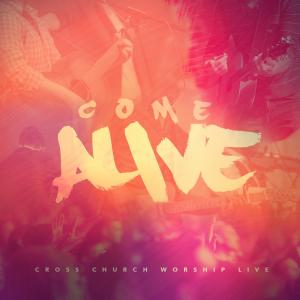
David is a worship pastor at Cross Church in Fayetteville, Arkansas. David discusses many topics including one of the most involved worship volunteer selection processes I have ever heard. This interview is well worth your time if you have any interest whatsoever in worship teams!
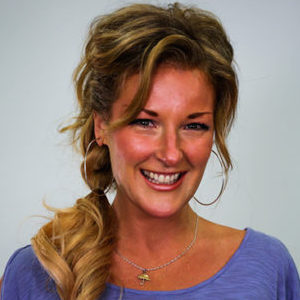
Today’s interview is with Worship Arts Director and Educator Michelle Shepherd from Las Vegas, Nevada. In this engaging interview, Michelle talks about some of the challenges and rewards in being a Worship Arts Director as well as an educator. Please see http://www.michelleshepherd.net/ for more information.

In this interview with Tyler Voas, Worship Director in Phoenix, AZ discusses some of the challenges he faces in directing worship teams and selecting songs. In addition to the most difficult genre to write music for, Tyler discusses his influences and why sounding like the U2’s edge is a good thing…

Interview with Worship Director for Jubilee Church in St. Louis, Missouri, Jordan Dillon. In this interview Jordan discusses several topics including songwriting approaches, worship teams, equipment, recommendations for worship leaders and much more. Be sure to check out his songs at www.jordandillonmusic.com

I met Michael Dow last year and immediately felt I had met a kindred spirit and someone I could learn a lot from. In this interview, Michael shares his thoughts on many topics including new technologies, musicianship and training. I have to say this is one of my favorite interviews and highly suggest anyone involved in Worship ministries (from musicians to sound engineers and pastors) to give it a listen. Zamar Media specializes in pro audio, offering its clients quality customer care with a commitment to excellence, integrity and value. More information on Zamar can be found here.
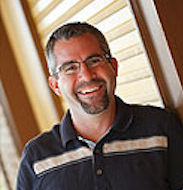
I’ve known Scott for almost ten years and consider him a good friend. I’ve lost count how many times and hours I’ve played worship music with him and always enjoyed it. As I felt I knew him too well, it took me a while to get comfortable with the idea of interviewing him for this Podcast. In this interview, worship pastor Scott Taylor discusses his background, what he looks for in a worship team as well as how much he loves guitar. I’m glad I asked him for the interview, I learned a lot about Scott and his passion for his mission. Sit back, relax and enjoy this Sonic Nuance Podcast interview…
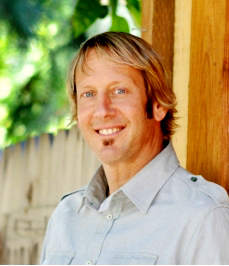
I’m excited to present the first Sonic Nuance podcast. In this interview, Mark Averill, Worship Pastor at Westgate Church discusses many topics including team practice and some funny situations that have come up.
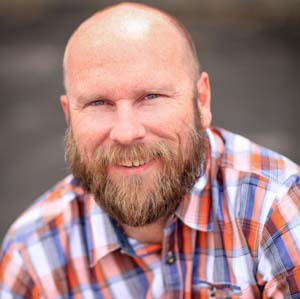
Continued from Part I
Ted: What is a common mistake you find instrumentalists making?
Brian: Frequency overlap like we discussed. Playing too much. Not playing off each other. Assuming they have to be playing all the time.
When I mixed for large church in Austin, TX, they had professional musicians that exemplified humility. They knew when to play and when not to play. That comes with maturity which is rooted in humility. Man, when you can mix for a group like that it is heaven on earth from my perspective!
Ted: How about singers?
Brian: I guess how to use the microphone. Good singers know how to do that based on their dynamics and the type of mic they are using. So I would say, knowing your equipment and knowing how to use it and trusting your engineer.
Ted: Amplifiers on stage or off?
Brian: Depends on the environment you are in. If the environment is super small and the musician needs the amp to be a certain level to get the tone…. it needs to be isolated or put in a closet, etc. That is true for guitar and bass.
I used to be of the opinion to always put the amp in the closet or isolate them. Going to Austin Stone I had a paradigm shift that you can actually have amps on stage and mix well. I like to have amps on stage sonically as long as it can be managed. If not, steps have to be taken to help manage the stage noise.
I would say there is no absolute and it depends on the environment.
Ted: Tell me about miking amplifiers? Where do you normally place the mic?
Brian: If the equipment allows it, I like to double mic a cabinet, watch out for phasing. I EQ those differently to get different sounds. I have mostly used and had access to Shure SM57s and Senheiser 609s mics.
With the SM57 I like to point it off axis towards the outside edge on the front of the speaker cone. This tends to get less harsh tones from the amp.
With the 609 I generally focus right where the cone meets the dust cap. With the 57 I’m trying for the warmer feel and with the 609 I’m capturing the crispness. When eq’d and mixed correctly it sounds like you have different guitars. Or like you have two amps.
There are so many different ways to mic things and you learn from trial and error. I’ve seen people do some crazy stuff, but in the end if it sounds good roll with it no matter how unorthodox it may seem.
Ted: How do you like to mic a bass drum?
Brian: I’ve settled on two mics for the kick. A Shure Beta 91 boundary mic to pick up the attack inside the kick on an eq pad/blanket . Then I use a Shure Beta 52 (assuming you have a port) half way in to get the meat of the sound. My preference is a punchy kick not a boomy one. I want it to feel like the subs are punching you in the chest
Then you have the bass guitar to fill out that sustained low end. I don’t want resonance from the bass drum, its meant as a punch.
Ted: How do you like to mic a snare drum?
Brian: Usually default to a Shure SM57 for the top and sometimes a condenser like an I5 to get the snare from the bottom. This will get the crack from the top and then the snare from the bottom. Then you can combine those two to your liking.
Depending on the sound you are going for, I usually point the 57 between the center of the head and the hoop of the snare about 2″ off the head pointed diagonally.
Ted: Advice you would give to soundmen starting out?
Brian: Be a sponge. Soak up anything you can. Listen to any feedback and don’t be afraid to fail. Put yourself in an environment where you can learn. Just dive in head first. Always be a learner. Be humble! That’s true for everyone, even people who aren’t new to mixing.
Ted: Any closing thoughts?
Brian: Approach everything with humility. Every environment, every band, every event: Check your own pride, title, years of mixing, etc at the door… You will grow more and get further in your career. This puts you in a position where you can learn. Most of the dudes that are awesome at mixing are just the humblest guys. They know what they know because they are humble. They know they don’t know everything because of their humility. None of us know as much as all of us!
Constantly check yourself. Why you are doing what you are doing? As far as in Worship, I can’t over emphasize the importance of being a constant learner “Disciple”.
Contact Brian Clark:
brian@resonatemovement.org

Brian Clark is Production Director for Resonate Church in Fremont, CA. Interview conducted 5/13/15 over lunch.
Ted: At the beginning of a live performance, what is going through your mind as you are mixing?
Brian: [long pause with laughter] It is five minutes of panic no matter what type of event it is and regardless of how well we prepared. I’m thinking about the cues and that all mutes that need to be off are off before we start [laughs]
Also, if my scenes are set and if I’m using wireless microphones that the batteries are replaced, and that I made sure I scanned the wireless frequencies enough that they don’t get stepped on.
Ted: Since you brought up wireless… do you have a preference for wired or wireless and why?
Brian: Definitely. My motto is if you can go wired, go wired. It eliminates a lot of variables that can go wrong – frequency interference, cutout, reception, quality of sound, etc. It just gives me more peace of mind to go wired. Things are more stable.
Ted: What suggestion would you give to musicians to help make the soundman’s job easier?
Brian: [pause] Well this has to do with relational equity… that the engineer feels that the musicians trust him. This can b in the form of the musician asking for feedback from the soundman. For example, “is my amp too loud?”, “how does it sound out there?”. Those types of interactions bring the soundman into the band. When musicians can acknowledge and engage the engineer it makes him feel he is a part of the family. Especially for the worship leader, he or she really needs to engage the soundman. For example, giving a roadmap to the soundman to help him play the console. Since the console is an instrument, it helps him to play it. So I would encourage the musicians to get feedback from the soundmen.
As a soundman, I always encourage people that I train to solicit that feedback from the musicians. It makes our job a lot easier and creates unity.
Ted: What is your approach to instrument tones? For example do you preserve the musician’s concept of tone or modify to meet your concept?
Brian: My approach is to preserve as much as what the musician wants from his equipment as I can without it negatively impacting the overall mix for the audience. My approach is finding out from the musicians what they are trying for. During rehearsal or soundcheck is the time for going back to musician and talking about any modifications that might be needed. That may be asking the musician to tweak something or modifying it at the board.
Recently, I had two guitarists with similar tones, in the same frequency spectrum. Both sounded good on their own but together it became muddy and hard to distinguish one part from the other. One of them had to separate to differentiate them by either adjusting how they played, the amp or the EQ at the board. At the end of the day, what works for the audience is what we are trying to get.
And that needs to be communicated during band practice because I want the musicians to be heard.
Ted: Since you brought up guitar tones, let’s talk distortion… Guitar distortion is one of those things that can sound really good when the musician is practicing at home but doesn’t work in a mix. Do you have suggestions for guitar distortion?
Brian: Well that’s a difficult one for me to answer because I’m not a guitar player. From an engineer’s standpoint… I like guitar distortion where it can sit in its own space. It is very easy for it to step on another guitar player’s space. Often times, the distortion competes a lot with what keys. The low mid frequencies can get crowded real quick.
It can make it difficult to get a clean mix. I personally don’t like a lot of distortion, I prefer cleaner articulate sounds. I think it is important for the musician’s to play off each other tonally. I think that’s what separates the really good musicians from the ok ones. They realize they don’t have to play all the time if it is getting too crowded.
Ted: How do you handle criticisms of volume?
Brian: [long pause with laughter] I hand ’em earplugs [laughs] Just kidding. It all depends on the environment. It is important to remember you are mixing for the audience, not necessarily for yourself, so you have to constantly be aware of it. For houses of worship, I want whoever comes to me with a complaint about volume to know that I hear them and that I care. My approach is letting them know that we value their input and are monitoring volume with the tools we have available to us. We aren’t just haphazardly turning things up, we make sure things are at safe levels for the environment. I also explain that everyone in a room will hear things differently. Some will say its not loud enough. Then there are psychoacoustic dynamics of how people perceive what they are hearing. If I know what is bothering the person (high frequencies for example), I can pay more attention to it using my RTA and my ears. In the end I don’t want what I am doing to become a distraction.
Once I had this conversation with a lady who was very upset [about volume]. But after having that conversation with her (explaining that we value her input and monitor levels, etc), she responded to me that as a lifeguard she always had people saying the pool wasn’t hot enough and those who would say it was too hot. She acknowledged that she could never make everyone happy. So in a way she was supporting my position and was open to my suggestions of where to sit in the venue that might be more pleasing to her.
So in summary, my approach is not to devalue them but to assure them that we are doing the best and that we mixing for the audience to have a good experience.
Ted: What are some of the challenges a sound tech faces when coming into an established church (one where a significant portion of the equipment is in place).
Brian: [long pause] Something that I learned from a highly respected engineer in Austin, TX, is that a good engineer is going to use the gear that they are given and make it sound the best that it possible can. Anyone can take a top of the line rig and have it sound good. Its the good engineers that are going to take a system with subpar gear and squeeze every ounce of goodness that is possible out of it.
Another challenge when coming into an established house of worship environment is knowing that things need to change and convincing leadership to move from one set of equipment to another or better yet a whole philosophy paradigm shift. The key is to do your best to help leadership understand the value add of making the change. Just remember to not take is personally, you are all there for the same reason, to proclaim the Good News. At the end of the day we must submit to our leadership.
The other major challenge is being respectful and honoring to the team of staff and volunteers that may have setup the venue to begin with. Helping them become owners of the vision, I think its the best way to make changes.
End of Part I
Part II can be found here
Contact Brian Clark:
brian@resonatemovement.org
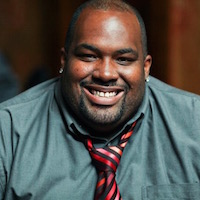
Interview continued from Part I
Ted: What is your stance on instrumental solos?
Harry: I am for them if they help tell the story. Also if the song needs to breathe in the sense that some songs can get wordy. It can be fun to have a solo as a sort of break in the action. Currently we haven’t done them a lot. It really depends on the situation. It also depends if it is an iconic lead line.
Ted: What is your approach to motivating the volunteer musicians to practice?
Harry: I am not a confrontational person by nature. I’m not going to berate… I’ve learned over time to really motivate one by speaking how we want to be excellent, we want to be excellent for God. Its not about looking good or making me as the leader look good. Its about doing what we do to bring glory to God. So that means taking the time to prepare before band practice. A lot of that is choosing song that are interesting. I like to throw a different arrangement for a song and I know if people have practiced or not – sometimes I play that game but not that often.
Ted: Let’s say an individual musician’s part isn’t working out during practice, how do you address it?
Harry: I do it then [at practice] because I don’t think it is helpful to anyone else on the team to have them walk away thinking something is fine. I’d rather take the time to make it work or make the adjustments to make sure everyone is on the same page. If everyone is confident on where the song is going I think you get a better product.
Ted: What is a common mistake you find instrumental performers making?
Harry: For us there’s two. One is understanding how to play in your space. A lot of musicians try to fill same sonic space, like too much activity in the mids. Maybe I ask the piano players to give me a little bit less and a little bit higher. Saying to my guitar player don’t capo past the fourth fret as it makes it sound like a banjo and its not really creating the sound we want. Create some space in the room so don’t get wall of sound. Sometimes people haven’t played with other people a lot so they don’t understand how they fit in the grand scheme of things and how it sounds like.
The other common thing is people looking at the first chord on chord chart and assume that is the key of the song. It might be but not always. I’m thinking of giving some light music theory instruction to help people out. What I’ve learned since I’ve come out here is everybody is busy so I ordered a resource that I might have people review and study.
Ted: What is a common mistake you find vocal performers making?
Harry: I think the most common mistake is being so tied to arrangement that they don’t express it fully themselves. They try to make it sound like a recording or this person but they don’t make it their own. The approach I prefer is, “let me do what I can do really well as opposed to not quite reaching the mark that this person set on the recording”
Ted: Let’s say a team member has been playing with you for a while and someone new comes along that is more talented or a better fit. Have you ever had to deal with this and what have you found works?
Harry: Well it wasn’t at this church… That one is tricky. I have rarely come across a situation that someone so is tied to a position they weren’t willing to move. At least now with having multiple teams I have the luxury of shuffling people around. Usually what I have seen is someone comes and is great and feels a need. That may just be a blessing from God [laughs]
Ted: Ever let musicians go from worship teams? Any suggestions?
Harry: Yes I have had to let people go, not at this church. [pause] It is one the hardest things I have had to do. We’re talking even harder than asking someone to marry you…
Ted: [interrupts] or play drums while leading worship?
Harry: [laughs] Yeah. Its difficult because for me I believe ministry flows from relationships. So if you are someone who plays on a team with me, you’re not just someone who plays and goes home. Its my goal to have a ministry and be a part of that person’s life. So we’re more than just people on the stage together, we’re friends. Some are closer and we spend time outside of practice so when you ask someone to go you are breaking the relationship.
As far as suggestion go, being upfront with the reasoning when asking someone to leave is the best.
“I don’t feel like you’re coming prepared”
“I don’t feel like you’re doing this because you feel called but because you want to be on the stage”
… I’ve had to do that.
“I know you are dealing with some things in your life right now that I need you to focus on and this ministry is a distraction”
I’ve had to do that as well. I’ve had conflict among members of the team, with me, etc.
With all those situations, its so much easier to deal with it head on. My non confrontational nature makes this harder because, and here’s another suggestion, you really have to do it in person. An email or voicemail doesn’t cut it.
You have to sit down face to face and have that conversation. Let it be tough. Don’t do it an email. Do it quickly and don’t let it linger because people will hear about it and you may have other issues to deal with.
Ted: Any closing thoughts?
Harry: Um… [long pause] I’ve been doing this for almost 20 years and I still enjoy it. Its funny to say it as I’m only 34, but I’m starting to get to the point where I’m pouring into other people. Its kinda fun sharing what I do with others. Didn’t know if I’d like it but it is exciting. People are starting to care about what I say – conferences, courses. Pretty fun. Its definitely a calling. I still love it even after surviving Easter. [laughs]
Ted: Thank you so much!
Harry: Yeah man.
Contact information:
Harry Walls IV: harryw@bridgescc.org
Worship Pastor
Bridges Community Church, Fremont, CA
Blog: http://worship180.org/

Interview conducted April 17, 2015 at Bridges Community Church, Fremont, CA
Ted: Can you describe for me the process of choosing a setlist?
Harry: It has changed over the past three to four years for me. I used to be a lot more intentional, like trying to make everything fit with the message. However, at least for me, you run out of song choices real quick. There’s not always a direct song linking to specific messages. Lately I’ve been listening to songs and playing ones that I and the band like. Your band gets into playing songs that they like.
With that being said, with the way our services are usually setup, we often have a song going into a prayer time before the message and one coming after the message. I would try to make sure at least one of those (preferably the one after message), speaks as directly as possible to the message.
Ted: Can you explain what prayer time means for your church?
Harry: Whoever the venue pastor is for that week comes up to the stage and will pray as we go into a time of greeting and announcements. We usually play through the chorus of the song we were playing right before that instrumentally softly during that time.
Ted: How do you introduce new songs to the congregation?
Harry: I try to use all of our different avenues. We will start putting new songs as part of our pre and post service music. Sometimes we put new songs on Spotify on the church’s Facebook page ahead of time. Usually we will do it in a portion of the service that causes them to listen to it more. Often we will do it early on in a service where we can say (as we teach the chorus), “if you get nothing else right now [with this new song], here is the chorus”. We’ll go over it a couple of times then launch into the song with the full band. Sometimes if it is a tougher one, we may make it a song as people are leaving as well – so we might do it twice on a Sunday to reinforce it.
Then we’ll throw it into the mix [of songs] for the next week. I then give it a week off. We’ll do it one more time and if it “sticks” based on the reaction to congregation, we will add it into the rotation of songs.
When people get a song, they usually sing it. If they come back the second week after introducing the song you can tell as a worship leader if they have been thinking about the song. You can also tell after service if they come up to you and say how they really like that new song. So we gauge it that way.
Ted: What is the importance of “singable” songs?
Harry: You know what? I go back and forth on that one. I think there is great joy and something really awesome about people able to sing. So I do try to put songs in a place where the congregation feels they can sing along.
I went to a conference this year where someone explained that they play a song based on who is leading it. If people can sing it, fine. If not, fine. But that was for a really big church and they run their music a lot louder. Their thing is, people might not even want others to hear because they can’t sing. But they still want to worship by screaming at the top of their lungs. Part of me goes, “man that would be awesome!” But knowing where I am at my church, people love to sing and hear those around them sing.
So I do tend to focus more on putting songs in a key that allows people to sing along.
Ted: By that token, would you pick the singer based on the key which makes it easier for the congregation to sing along with?
Harry: It depends on the song. I have a pretty wide range as a vocalist. But I found in many years of doing what I do, that even if I can sing a high part, women in the congregation always feel like they have to sing an octave higher. You end up with a screechy thing going on in the room. So I try not to go too far either way.
If I’m in a key where I go, “this could work for me” yet its not going to work for the room, I’ll put it in a key for the female vocalist instead. We try not to change the keys too much as sonically sometimes it doesn’t have the same feel. The song loses its impact.
Ted: Also, do you do “reflective” songs where the congregation is not necessarily singing?
Harry: Sometimes. We did that recently. I found the easiest way to do that is to not put the words up on the screen. If the words are on the screen people automatically sing.
Ted: What instruments do you usually lead with as the worship leader?
Harry: Normally the grand piano as I’ve been playing around on it since I was three and started taking lessons at five. Sometimes I’ll lead from the front with guitar. I haven’t led from keyboard, I’ve found it really hard to lead with pads. Also we would have to move the keyboard around on stage because we don’t have a deep stage.
Although for this past Sunday for the first time I led from a small drum kit because we didn’t have a drummer. [Ted chuckles in disbelief] It was a kick, snare and ride cymbal and I was playing brushes. By far that was the hardest thing I’ve ever done. Singing, leading people, the band, listening to the click track – there was a whole bunch going on! [laughs] We got through it but it was crazy. Not sure I would do that again [both of us laughing] That Sunday night was long – my brain was starting to hurt [laughing]
Ted: Do you have a typical instrumental configuration for services?
Harry: For the typical band we do piano, keys (a separate musician), bass, acoustic guitar, electric guitar, drums, lead singing and two background vocalists. Sometimes we add a person doing percussion (shakers, tambourine, congas, that kind of stuff).
Ted: What is your approach regarding remaining faithful to a recording’s arrangement vs taking artistic license?
Harry: I like doing both. I personally feel that if we can be true to the song as it is originally recorded, then when we want to change things at least everybody has a working knowledge of the structure. Its one thing to say, “listen to the recording but we are not going to play it at all like that”. But if we play the song a couple of times with the original arrangement, its not a big deal to change a couple of chords for example. Roadmaps of a song are strictly done serve the story we are trying to tell on a particular Sunday.
For instance on Easter Sunday we opened with a song “This I Believe” by Hillsong which has a creed. It was coming after a video we were showing that did that creed as well. So we only did the choruses for it. That’s the feel we wanted to have. Thus the roadmap was totally changed to serve the story.
Ted: How do you communicate roadmap changes to the team?
Harry: I used to try to do it verbally but I found that people zone out or for whatever reason miss it. We can easily eat up 30 minutes to an hour due to, “wait, did you say chorus then bridge?” So we put the roadmap in planning center software. Actually we add it to the arrangement of the song so it gets placed on the top of the sheet. The catch phrase when questions come up has become, “its on the top of the sheet” [laughs]
Ted: Do you have music stands on stage?
We use both stands and iPads. If the band members have iPads and want to, then they use them. Its nice because we print out less paper copies overall. Usually about half the team is using the iPads so we’re cutting the paper down in half.
Continued on Part II

Dan Gillette is the Music Pastor and Tech Director at Valley Bible Church in Pleasanton, CA
Interview conducted 4/14/15 at Valley Bible Church…
Ted: Easter just completed. I think most people (myself included) don’t really appreciate how much work the Worship Pastor has during this time. Can you help my readers get a sense of what its like preparing for Easter?
Dan: Well I think there is a pressure that is… well I’m not really sure where it comes from whether its the western church or how things are culturally in America, but there is a pressure for Easter to be epic, or a step up. I try to fight that pressure because if there is somebody coming to our church for the first time on Easter I want them to get a real representation of how we do things. I don’t want to make this spectacle or special program and then they come the week after and its totally different. So what I try to do is make it as normal a Sunday as possible.
There is a lot of work, but the thing that makes it different is we’ll have some additional rehearsals. This is because we want to get the music down really tight. What that does is push our time table up where we have to get our setlist up earlier and have longer hours.
We had a special song and a couple of solos [a song where a singer is featured vocally and the congregation doesn’t sing along]. We also had a vocal ensemble which is different. Its definitely a lot of work but I would say that of every Sunday. I’m definitely glad its over, I can exhale a little bit.
We had about three to four additional rehearsals to get the music tight. We had a Friday service and two on Sunday. Part of the work is in the staging setups being different for Friday and Sunday. Monday we had a vocal rehearsal for Easter, Tuesday we had a band rehearsal for Good Friday, Wednesday we had the band rehearsal for Easter and Thursday there is another church activity. Each of those days required set and equipment changes, so you get an idea about the extra work. Not to mention Friday and Sunday themselves. Lots of extra hours involved. It turned out really well.
Ted: Tell me about your process for choosing a setlist.
Dan: We always try to consider what the message is going to be about, or if there is a special holiday or time of the year. The way we talk about it here is we have guidelines that help us as we pick our sets and we are also trying to stay in a prayerful, attentive mindset throughout our week. This is because I’ve found that the Lord will bring songs to your heart or mind and it will turn out to be exactly what is needed. So you’re not just sitting in your room with your guitar or out and about and hear something interesting – we train our people to be prayerful and attentive so that the songs are inspired choices.
Part of the guidelines involve considering the worship culture at our church. Every church has a different flavor or feel to it. We want to serve our people. While we will do things that will kind of shake things up, ultimately we want to create an environment where people are comfortable. Our church is not the most punctual group of people so we typically won’t start off with a song that is super intense or high energy right at the beginning. People are still trickling in. We start with like ten people [laughs] and by the second song there are 300 people. So our set is sort of a ramp up in terms of energy level. By the time we end our first set, that’s when we are going to do something that’s more dramatic and high energy.
The other thing we consider is people are coming in, rushing to church, getting the kids ready, maybe they got into fight on the way there so we kind of want to gradually bring people along. That’s one example of our worship culture that we use as a guideline.
Another guideline we use for our set lists is we value balance. We generally look at our songs in two ways: vertical songs to God and horizontal songs about God. So we like to have a good balance of that in our sets. That way it isn’t always us singing about God but we are also singing to Him. Another way we try to get balance is we like to have a number of eras represented in the musical styles. We like to do stuff that has come out in the last couple of years but we also remake a lot of hymns and we’re not afraid to pull something from the 90’s either [laughs]. And for musical variety we’ll try not to do a bunch of Hillsong songs for example, because those have a certain feel to them and build a certain way generally. So by using different artists’ catalogs, it helps keep the setlist varied and the songs not all sounding the same.
Ted: You mentioned the message… can I read between the lines and say you are trying to link the lyrical messages with the sermon message?
Dan: That’s not something that we work super hard at. The reason for that is our experience has been… if you are just trusting the Lord and you are picking the songs that are gonna capture people’s imaginations about who God is and what He’s done… We tend not to do the songs that are like, “God you’re so good”. We want songs that express why God is so good like His steadfast love or His work on creation. So since those are the kind of songs we do, those types of songs go with every message. We coordinate with our teaching team and we look at the texts that they’re doing and we’ll use that as a springboard but its not something we belabor over. Its cool to see how God makes it just come together.
Ted: Do you have an ideal or typical instrumental configuration for most services?
Dan: We value variety and have an incredibly talented team that can handle a lot. So about once a month we’ll do something that is totally different where maybe we’ll just have a big vocal team a guitar and a piano. Then the next month maybe we’ll do a full set where we have a cello, mandolin and banjo. Typically what we run is one or two electric guitars. One of my pet peeves is having two people doing the same thing. So you will rarely see two people playing rhythm acoustic guitar here. So we typically have rhythm electric guitar and rhythm acoustic guitar (which is typically what I do), lead guitar, two keyboards (piano, hammond organ and/or synth), electric, bass drums and one or two vocalists. People will kind of bounce around from song to song for variety in the instrumentation. I want to take the congregation on a journey and don’t want every song to sound the same. We’ve got the people to make that happen (both musically and sound tech wise) so that is great. Oh, and sometimes we have “color” instruments like cello, banjo and mandolin that we sprinkle in when appropriate.
Ted: Do you generally take artistic license with song arrangements/improvising or do you try to be faithful to the recordings?
Dan: I’m all about preparation. So if you are going to be on our team you must be committed to practicing on your own. 80% of what we do is based on an arrangement we found as a guide. 20% is where we want people to be creative. What I found facilitates that is if people know what to practice. I found people need a point of reference and a chord chart isn’t enough. A recording is usually just the reference.
So much of leadership is communicating about where you are headed. So if you communicate the vision of where you are going with the arrangement, people generally do well with that.
Ted: What is your approach to background music during prayer/quiet/communion time?
Dan: For every service there are prayer points. Also, almost every song has an extended instrumental break. However, for communion we start with about 30 seconds as silence to allow people to commune with God.
Ted: Let’s talk a bit about technology. Do you prefer wedges or IEM on stage and why?
Dan: Because of size of our room we use strictly IEM unless there is an exception. We use myMix personal monitors and love them. 95% of the time we use IEM. If we had a bigger venue I would love both. However, there is usually too much bleed.
Ted: What is your stance on wireless vs wired mics?
Dan: We tend to go wired for reliability reasons. Also, you tend to get nicer mics for your money with wired.
Ted: Do you allow guitar amplifiers on or off the stage?
Dan: They are on stage in custom made isolation boxes.
Ted: Do you mic the amps or use some other approach?
Dan: Generally they are mic’ed.
Ted: Do you have a preference of analog or digital mixing boards.
Dan: Digital. It really has become a necessity. It is also very nice to have motorized controls.
Ted: What is your approach to music volume?
Dan: We have a gracious church and haven’t had to deal with complaints for the most part. This church is intergenerational, so for hearing safety we run in the high 80s to 90dB range. We give out pamphlets about our approach to volume which seems to have helped as well.
Ted: Moving on to team dynamics, what suggestion would you give to new worship team members to assist the soundman, lighting and/or projection teams?
Dan: I would say you have to start on the relational level and cultivate a team environment where the musicians and tech are part of the same team.
Ted: What is your approach to giving feedback to performers when a part needs adjusting?
Dan: I like to use Ephesians 4 as a model in terms of giving criticism with grace and receive it with humility. If you are going to be a part of our team it is expected that you can handle criticism.
Also, if you know something is going to be hard in terms of confronting someoneIf, be preemptive .
Ted: Have you ever let musicians or other team members go?
Dan: I have been in this role since from 2011, and I have never had to say you’re off the team. I have asked people to step aside for a season to deal with more important family matters however.
Ted: Thank you for your insight Dan.
Dan: Anytime
Contact information:
Dan Gillette
Music Pastor and Tech Director
Valley Bible Church – http://www.thecrossing.org/
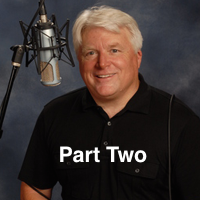
–The first part of the interview with Patrick Caples can be found [button style=”” url=”http://sonicnuance.com/2015/04/21/interview-patrick-caples-part-one/” size=”” block=”false” target=”_self”] here [/button]
Ted: Similarly, do you have suggestions for musical performers to help make the soundman job’s easier?
Pat: I would say come prepared. Be prepared with your equipment. I have a lot of pet peeves [laughs]… As the tech team we try to be prepared so that when the band walks in we can get to work right away. We do lots of things to prepare for that. So my expectation is that every musician would do the same thing. If call time is 10 o’clock so we can hit downbeat at 10:15 for example… be there at 10 o’clock would ya?! If you have an acoustic guitar with batteries, put new batteries in it. Come prepared and be professional. I know there are volunteers but that doesn’t mean you can’t take a professional attitude about how you do it.
Also, work together. Be collaborative with the tech team. At Bridges this comes from our Worship pastor who gives us [the tech team] freedom to speak our minds and give suggestions. What it sounds like on stage (and in our case we are using in ear monitors (IEM)) is totally different than in the room. We have an ambient mic that helps with removing some of the sterileness of IEM. But you are almost flying blind as a musician. As a musician playing on stage, you know that you have no idea of what it sounds like in the room. It is a trust thing between the musician and the soundman. That’s part of breaking down those barriers so the musicians can just play. From the tech booth we minister to musicians so they can do what they’re gifted to do – to play and just let that flow out. So the musicians have to trust that the FOH guy has their best interests at heart to make the band sound as good as possible to communicate the gospel. Sometimes that means checking your ego at the door. And at church that should always be the case, but in reality it isn’t. If you’re so concerned as a musician about everyone hearing your notes all the time… you just have to let that go.
Ted: And sometimes its best to pull somebody out of a mix. [laughs]
Pat: Oh my gosh absolutely… Addition by subtraction. [laughs] And that is an advanced skill from the desk. As you get to be a musical mixer and not a just fader flyer, you learn to do that. If you have a husband/wife/friend somebody who is going to come back to the desk and say they can’t hear a musician… Well, if you and I want to have that discussion I will tell you why, but you have to understand we are doing it for the best interest of the big picture. It takes a while for some guys to learn how to do that. That’s a big thing and it speaks to the tech team and worship team working as one.
Ted: It seems a common complaint at church is volume. How do you handle criticism on volume?
Pat: That’s a tension that every church goes through. The way I handle it is, when my spirit is right and I’m not being prideful, I have to first listen to the criticism. What is driving the criticism? Some of us, and I’ll include myself in this, like music loud. But you have to listen to what that person is trying to express with the criticism. Is there something really there?
We monitor volume all the time at the FOH position and we also monitor frequencies that are being output. Some people haven’t grown up with the type of music I have and don’t like loud rhythm for example. So when you start to dissect it, you have to understand the genesis of the criticism. Does “its too loud” mean, “I don’t like as much bass and drums as you do” or is it that it physically hurts the person at certain frequencies?
But here is what I’ve found. More often than not its the frequencies that will cause it to sound louder than it really is. Let’s say you are running a room at about 90dB and you get a “its too loud” criticism. You may say, “hey, its only 90dB”. But if your vocalist for example or guitar player is screaming at 2kHz and its like a nail right in the side of your temple, its going to sound to the complaining person like it’s louder. So we tend to put the vocals a little bit back in the mix and we have found that will keep complaints from coming back more often than not. You gotta have the room tuned right, the PA tuned for the room and your mix EQed properly so you’re not projecting frequencies that are harsh and painful, but bringing the vocals back a bit seems to help.
There’s a frequency range in the 2-6kHz that if you don’t have tuned right… my gosh it will physically hurt. Don’t get me started on cymbals. Cymbals drive me nuts [laughs]
Ted: Yeah, cymbals and certain snare hits have always hurt my ears, especially when I’m on stage.
Pat: Cymbals are tough as they will wash out a mix. The really good drummers have a touch to the cymbals and can control it. We’ve worked really hard with our drummers to have touch on the cymbals. Its really hard because they get excited and its hard to do that. Only the really good drummers can do it consistently. And there’s only so much you can do EQ wise. We tend to tune our drums darker. A bright drum may sound good in the studio but live its another thing altogether. It just makes a mess of the mix. You gotta get it right at the source: mic placement, the instrument itself, etc. and then you can deal with the EQ.
EQ is really to deal with nuance of the room or separation of instruments in your mix so you can hear distinction between instruments.
So back to the volume concerns. You want the person giving the criticism to know that their concerns are heard… it doesn’t mean you are going to act on them, but at least you can express why things are done a certain way… preferably not in the middle of a service though.
Because of subjectivity, especially “what kind of music is right in church?” (which isn’t so much of an issue now) the question is, “who am I going to really listen to?” First of all, I am going to trust my ears. And then there are a few other people who’s opinion I trust and I will ping them. Who do I have to listen to? Bottom line is I have to listen to my Senior Pastor. If my Senior Pastor comes up and says, “hey Pat, we gotta make an adjustment”. Well, then I’ve got to make an adjustment. So you have to understand who your boss is. Granted, our ultimate boss is Jesus Christ, but come game day as a tech guy I have to listen to my Senior Pastor. If he thinks its too loud, its too loud. Period.
Ted: Do you have a preference of wired vs wireless and why?
Pat: It really depends on the application. If at all possible I go wired because you don’t have to deal with the issues of RF interference. Sometimes wireless is the preferred way to go, but its never the only way to go. Sometimes its easier for vocalists to go wireless if you are going to make a set change for example. If you’re going to go wireless you’ve got to do your homework: scrub your frequencies, change batteries, etc.
Ted: You mentioned IEM. What is your opinion on them and why?
Pat: My opinion is if at all possible it is the absolute way to go. The quickest answer is you get better sound. If you’re using wedges the SPL from them will affect FOH sound: mic bleed, different monitor mixes causes junk everywhere, feedback issues, indirect sound bouncing off the back wall. We made the change several years ago and did measurements. With wedges each musician was getting a different mix and they were all coming out at 90-95dB. It may sound great when you’re standing in front of it, but from the FOH you are just getting the indirect sound, usually the midrange from 300-2kHz. Just awful. Now with IEM you’ve got a quieter stage, and there is a learning curve, but all the sudden the musicians can hear everything. Much clearer, its not even an argument. If the church can afford it and has the expertise it is the way to go. But it is a major financial investment.
If you’re going to go with IEM, don’t let your musicians come with their iPod earphones. Please take them away. If at all possible make the commitment to invest in good IEM headphones for the band. We provide universal earphones. So you need to provide good replaceable earbud tips, as well.
Ted: Amplifiers on stage or off?
Pat: Well that is the same argument as wedges and IEM. To the extent you have the ability to do so, get the volume sources off the stage. Get rid of the junk that is leaking in. For guitar amps especially, in the context of contemporary music you need some volume before you get good tone. If you have a closet you can dedicate for the amp do so. If not you can DIY stuff. Church on the Move’s website shows you how they build isolation boxes. If you have to have something on stage, like a bass amp, it is really only as a monitor. There are some tools out there to deal with this stuff also.
Ted: Approach to compression? Always on, always off?
Pat: Compression probably is one of the most misunderstood tools to the audio engineer. Now if you have a digital board you can adjust and save settings per singer so the learning curve for each service or rehearsal is not so great.
I don’t think in terms of “always on” or “always off” but more application specific regarding compression. You have to know what you’re doing with it. There is a lot of information out there to learn from, but compression is an art. You have to understand what a compressor is doing and what it is not doing.
Generally there is some gating on our acoustic drums. Compression is used a bit on most every instrument on the drum kit. Most amplified instruments are getting some level of compression. Not a high compression ratio, but just a touch. Guitar amps tend to be noisy, effects pedals, etc so gating gets used there too.
Ted: Do you find a common mistake instrumentalists make… maybe newer players?
Pat: I’ll make a joke… Sometimes I wonder if musicians think they’re getting paid by the note [laughs] Just playing too much. Its not necessary to play all the time. Sometimes simpler is better.
Ted: Similar question for singers
Pat: Microphone technique. Knowing where your resonant notes are. Understanding when you need to pull the mic back. Generally speaking, for verses you need to “eat” the mic [keeping it right up to your mouth] and for choruses you need to pull back. I heard this somewhere, there is a “rule of thumb” with mic technique. The rule of thumb is you want the mic no farther than the length of your thumb from your chin. If you hit a note that pierces, you sometimes have to help the sound guy and pull it back away from your mouth.
Ted: Any closing thoughts?
Pat: As a church sound tech person, really understand why you’re doing what you’re doing. We have the most important story in the history of the world to tell. We have to use the tools we have to tell this story the best we can. The microphones, the voices, the mixing boards, the instruments… We all need to make sure we have checked our egos at the door. Everything that we’re about is telling the story of not only what Jesus has done for us on the Cross but continues to do for us in our lives. That is the main thing. Its not about getting the greatest drum sound. But if you can get the greatest drum sound because it helps tell the story that Sunday then that’s what you’re doing. Otherwise, you’re just a clanging gong. And… realize that we get to do this. Many of us are called to do this.
For more information, contact:
Patrick Caples
Technical Arts Director
Bridges Community Church
Fremont, CA 94539
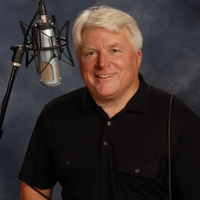
Bridges Community Church in Fremont, CA has a special place in my heart. I attended there for several years, played on various worship teams at multiple venues, brought my baby girl there to enjoy band practices (she loved to climb the stairs with me while the band belted out Lincoln Brewster songs), went to Bible studies, spent time with their pastors, went to celebrations with my wife, changed oil for single mothers there, made deep friendships and many more memories. I’ve since moved on to call Resonate Church my home after Bridges helped plant it.
I met Pat Caples while at Bridges and always respected his ability and ear as a soundman. I remember the first time I played on a team with him behind the mixing board. I was on a “I want to play flat wound strings and sound like a Motown record by rolling off the tone control” kick with my bass. It wasn’t quite working. I asked him for feedback after practice and I recall him gently saying something along the lines of “I know what you’re trying to do but there are better ways to achieve it”. He made several suggestions. I went home and tried them. They worked at home. That Sunday I tried them at service. He was right.
I have made it a point to always get the soundman’s perspective since then. Once I started this blog, Pat was one of the first people I was anxious to interview…
Interview conducted April 10, 2015 on location at Bridges Community Church.
Ted: Easter just completed, can you help my readers get a sense of what its like preparing for Easter?
Pat: Easter and Christmas are the Church’s two biggest events on the calendar that we focus towards. We want to make as big an impact as possible in those things as we recognize that:
1) We want to celebrate those [events] (and especially Easter as that is the essence of our faith – we’re celebrating the resurrected Christ and we want to make the most of that moment.)
2) We also recognize that is one of the two times of year that people who don’t regularly attend (or never attend) are gonna show up. So we want to make that impact with them – not that we want to do a show, but to help them see/experience that moment we are celebrating of the risen Lord. Celebrating the fact that Christ did what he said he did – that He is God and that He came back.
So we want to structure our programs, our services for that. In the case of Easter we do an event on that weekend starting with Good Friday, a big Easter Egg hunt on Saturday and services on Easter Sunday. We structure it to be a celebration of who Christ is. So we tend to pull out all stops for Easter. We’re not a church that does a theatrical type production. We try to do something that is impactful with our music, our programming, our staging, lighting, etc.
Ted: Would you say Easter, in terms of the amount of work involved as a tech director, is more than Christmas?
Pat: Objectively I wanna say more, but that is because I just came out of it [laughs]. Honestly, I really think it is more than Christmas. For us here at Bridges it is a full weekend. The Easter Egg hunt attracts our community and had four to five thousand people this year. Now as the tech ministry we do some stuff [at the egg hunt], its not the biggest thing we do, but it is another thing we support. The Children’s ministry are the point people for that but we support them with sound systems and different things. But yes, to answer more directly, Easter is more work. With Christmas its spread out over a month, we have different events but is really focused on one day, Christmas Eve. Easter tends to be three days, more rehearsals, more lighting, more musicians, etc. One thing we did this year which we really haven’t done in the past, is with our staging we made a decision to make each event unique. Good Friday is more somber, darker and the set designs, songs, band instrumentation etc is different from Easter Sunday because of that. This leads to more rehearsals for the sound, lights and video.
We brought in some rental lighting this year so we had to do more programming. Because it’s rental equipment, and like every known church in the known universe we have budgets, we have to maximize budgets and we made the choice to not have the rental lighting for the entire week because that costs more. We bring it in on Thursday and scramble from our preparation to execution. Everything takes longer than you think it does. With the Easter Egg hunt we really couldn’t dive into the lighting changes until that event was over. Good Friday ends late, we did some set changing and setup afterwards to prepare for Sunday, Easter Egg hunt is early the next [Saturday] morning… so it is a compressed schedule and it causes late hours.
We’ve created our own grief but we want to make this time impactful. Its hard and the stress is that you want that moment to be amazing for the congregation. Again, we’re not trying to put on a show but we want people to have face to face encounters with God. We want Easter to be something really, really special. Not that we don’t want Good Friday to be as well. But Good Friday is generally going to be the Church body [regular attendees], Easter is where people are generally going to invite others to Church so we want to make it extra special for them. As a tech team we are trying to enhance that experience to make it more impactful for them.
We went all out this year, and we had a lot of people come to Christ this past week. Its totally worth it but it does take its toll. We’re doing this interview on Friday, a week after Good Friday, and honestly it took me until yesterday until my body felt normal. I had aches and pains from going up and down ladders, being on my feet all day, running around and not being as young as I like to think I am [laughs]. It does it to everybody on staff – everybody gets worn out. You expend yourself but it was totally worth it.
Ted: Next question: Let’s say there is a new soundman for a Church, somebody brand new, what advice would you give them?
Pat: Our process is a little more streamlined than some other Churches. What we wanna do is… we never want to set someone up to fail. Because everyone has pretty high expectations for themselves. The more you learn, I think the higher your expectations become. And those are the expectations we put on ourselves. Number one, what we want to do is have the person observe and that is key. One of our big training elements is you’re not gonna touch the board for a while. You’re going to sit in a position we call an A2 (audio 2). You will be learning the setup and assisting the front of house A1. A lot of it is watching and understanding what is going on.
Now, there is only so much you can learn from watching obviously. We want the A2 to experience what the A1 is doing – the cues he’s hitting, how he communicates with the band, how he arrives at his mix, how he walks the room… nuances and technical stuff. Its a mentoring experience where you are watching someone who knows what they’re doing. And not everyone is suited for audio – its a unique gift. You have to be part musician, part babysitter and part technician. You have to have real people skills.
The best people I’ve seen do this have really excelled in people skills. If you aren’t able to break the barrier (and we’ve done a pretty good job of breaking the barrier between musicians and tech team)… I hear horror stories of the people in the booth (the tech team) and the people on stage (the musicians) who are at odds with each other to the point where it is uncomfortable. There is a real tension at some churches. I learned a long time ago that you have to be part of the band if you will. It needs to be a cohesive team amongst the tech guys and the musicians. It can create uncomfortable moments and major distractions where people in the pews are never going to get those face to face moments with God because of that tension. Its a point where Satan can use real spiritual warfare.
If the tech lead and worship leader create a culture of working together it flow top down. Its a culture that’s created from leadership. Its something that a new guy has to pick up on and realize that it is part of his job. So after observing, little by little we increase the responsibilities for the A2. I tend to go slower just because there is a lot to learn. Some people think you can just walk in and do it, but you really can’t to be good at it.
Doing sound is almost as visible as a musician. Because if you have a bad day and your mix is not good, its how people are hearing the Gospel. Whether its the music or the sermon, if its not done right, you’re not gonna tell the Gospel. We look at each Sunday as being a story. If the tech guys are butchering the sound, you’re not going to tell that story.
That’s kind of long winded…
Ted: No, that’s great information! In fact you mentioned the tech person being a musician. The best soundmen I’ve observed were “playing” the mixing board like an instrument.
Pat: That’s exactly how I look at it. It takes a little while to get there. As a sound tech you have to know the songs. You have to know the songs almost as well as the band. You know where the bridges are, you know where the solo is going to come up and be prepared. You have to know when to pull stuff out. You have to know how to make space. If you have a wall of sound, generally speaking there is no space for the music to breathe for those dynamics to really come out.
Ted: So I take it whoever is doing sound for a given Sunday will be present at band practice.
Pat: Yes. There are always exceptions but 99% of the time the answer is yes. You may have listened to a Hillsong recording, but that’s not exactly what the band is going to be doing regarding the song. The arrangement and the cues all could be totally different. But here’s the thing: you may have been at practice and know the songs well but come Sunday, you have to be prepared as a sound tech for the moment when the worship leader is going to change things up. Its a Spirit lead thing – you can feel how the Spirit is moving in the room. The leader might want to emphasize a certain chorus [by repeating it]. As you get better at it you can feel it coming.
Part II of this interview can be found [button style=”” url=”https://www.sonicnuance.com/2015/04/22/patrick-caples-interview-part-two/” size=”” block=”false” target=”_self”]here[/button]
For more information, contact:
Patrick Caples
Technical Arts Director
Bridges Community Church
Fremont, CA 94539
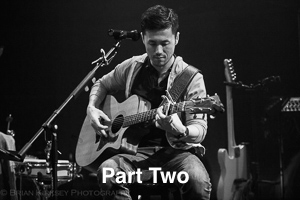
–Part I of this interview can be found [button style=”” url=”https://www.sonicnuance.com/2015/03/17/interview-freddy-wachter/” size=”” block=”false” target=”_self”]here[/button]
Ted: Ever had to dismiss a team member for whatever reason? If so, do you have suggestions for Worship Leaders?
Freddy: I would say the moment someone disrespects you, like calls you a vulgar name in front of people they’re done. If you let someone walk all over you in that sense they are going to use that against you. Now their is also a fine balance. One thing we teach here is grace and “assume the best and get the facts”. Sometimes I’ll say “I’m sorry you feel that way, can we talk later?” Because I want to find out why they acted like they did. Maybe they had a rough day at work or something I could pray over. But you have to use discernment and judgement per situation. If the person in question is affecting the vision of the team or if they think they are better than the team… then its time for them to go. I mean, its a team environment. Just like a football team – you got a quarterback who gets all the praise but he would be nothing without his defense. He will get tackled every single time.
Four things I look for whenever I bring a new person on. They are the four “C”s:
the Chemistry I have with them
the Competency that they have
the Character that they have
the Culture
Culture is a big one a lot of people miss. Musicians come from all kinds of backgrounds. You might have a gospel singer or an opera singer but you want that to fit in your culture. For the style that we use it might not work for a typical service, but if we have a “special” I might call that person up. So making the right stylistic choice per song.
Part of life is you’re going to have those conversations. Most musicians are very emotional – get their feelings hurt. So you have to use discernment and judgement. Are they adding to your team or taking away? Because if they are taking away, then you’re going to have to make that hard call.
Make sure you have the backup from your pastoral staff and your leaders before you make that call. You never know, people can start rumors and I’ve seen ministries get destroyed because of that.
Ted: Let’s transition to individual musician team members. I’m going to ask about some key members of a typical band. What do you look for in a drummer when somebody comes in and auditions? I would assume it would be keeping time, maybe playing with a click track.
Freddy: I play drums myself. There’s a saying I learned at worship school from professional musicians, “never practice alone, always practice with a metronome”. Every professional drummer I’ve talked to when I go to concerts plays live along with a click track. A drummer is the heartbeat of the entire song. If a drummer can’t keep beat then the song is destroyed. The congregation is confused clapping on the “one” instead of the “two”. Paul Beloche said “better no drummer than a bad drummer”. I believe that.
So I would say a drummer has to know how to play with a click, if not then they at least have to be teachable. Also they have to know dynamics. I think a lot of drummers overplay and show their fills. The best drummers in the world are very simple but technical.
If you learn the lingo of your drummer, your drummer will love you as far as communication. Also, look at the cues of the leader – pay attention to where the band is going.
Ted: Let’s move on to bass players
Freddy: I have so much respect for bass players because they are some of the most under appreciated musicians on the team because you don’t notice they’re not there until they aren’t there. I’m a firm believer that the bass player and the drummer are “married” together. The bassist isn’t playing exactly what the drummer is playing but you gotta play in the pocket. Also, play simple – the right notes at the right time. Because if you hit the wrong note then everyone hears it because its the low end. Also playing our style and being teachable is important. Regarding character, I would ask “are you trying to get your personal agenda across or are you trying to get one for the whole team?”
Ted: Rhythm guitarists…
Freddy: Same as the drummer, you gotta be able to play with the click. Do you have the right tone and playing the progression in the right way? Making sure you are playing the right voicing. Also hitting the strings when you are supposed to (muting the unwanted strings)
Ted: Keyboard player?
Freddy: They have to be flexible. Can they match the tones and go from playing a simple pad to playing a rhythmically complex part?
Ted: Lead guitarist?
Freddy: Don’t overplay and the tone is everything. The right delay, the right distortion. I look at the lead guitar and the piano as going hand in hand as they are doing little fills here and there. A lot of lead guitarists overplay, they want to play a solo every five minutes. A lot of rock and roll players are so used to playing all the time I check whether they can not play for sections.
Also splitting registers between rhythm guitar, lead guitar and keyboard. The concept of layering is very important. Its like painting a picture – depth, dimension, etc.
Ted: Singers?
Freddy: They have to know how to hear the notes. If they can’t sing to a chord or they can’t hear then they can’t sing. I don’t care how good a singer they are. I would say if you want to sing on a worship team you have to know how to harmonize unless you are leading the melody.
Ted: Keys of songs. What is your approach if a singer is struggling with a song in the written key? Do you switch keys?
Freddy: Absolutely. I will meet with the vocalists ahead of sending the songs to the team and ask, “what is the key you can sing this song in?” I want a key that’s comfortable for them.
Stylistic wise it has to fit. Can they sing with less vibrato? And no divas! The vocalists get all the attention. If the vocalists can’t sing it doesn’t matter what your team sounds like – the audience is just hearing that bad pitch. [laughs]
Microphone etiquette – backing away from mic when belting out a part, doing a sound check (singing not talking into the mic). Stage presence is a big thing – being able to interact with the audience that is not too weird or too showy.
Ted: Thank you for your time Freddy. I learned a lot as a team member and am sure others will too.
Freddy: No problem.
For more information, contact:
Freddy Wachter – Pastor of Music at Crossroads Church
Freddy@crossroadsfremont.org

In this first in a series of interviews with Worship team members, leaders and tech directors I speak with Freddy Wachter, Worship of Pastor at Crossroads Church in Fremont, CA.Freddy was kind enough to spend several hours with me (I intended 30 minutes but we were both passionate about the topic and just kept going). I learned a LOT as a worship team member especially from the perspective as a leader! The interview was conducted March 13, 2015…
Ted: For the music at your church, do you have an ideal instrumental configuration/setup for services or one that you use most of the time?
Freddy: We typically want to always have a full band. A full band just gives a livelier sound for certain songs. But I’m always open for trying new ideas.
Ideally if I have a drummer then I’m gonna want a bass player. For me it really depends on the teams we have each month. That’s how I plan my sets. So if I don’t have a lot of lead guitar players I’m not gonna plan really rockin’ songs.
Ted: So part of it is you plan on who is available and what works for the songs?
Freddy: Yeah… As far as vocals go, our stage is pretty small so we have narrowed it down to two to three plus myself at the most.
Ted: How important is it to you to have “singable” songs for the congregation?
Freddy: I think its really important, and what I find (and this is just my personal feedback from people) is there is something interesting that happens when a female vocalist leads over a male. The congregation reacts differently. I don’t know what it is. Even though I’m a tenor (I’ll sing “higher” songs) and I have a female sing the same key, she [sounds like she’s singing ] like an octave above me even though she is in the same register. To the ear it sounds like its higher and really its not. Same thing with altos and female vocalists, so their’s got to be a balance.
I read an article Chris Tomlin wrote and he said one reason he sings high is it forces the congregation to shout the songs rather than just say the words. I kind of took that mentality when I sing higher keys and have noticed the congregation does sing a little louder. I would say if you are in smaller environments like small groups or small rooms where people aren’t gonna really sing, then you want to drop the keys though.
Ted: What is your process of choosing a setlist?
Freddy: Once a month the Senior Pastor and I will meet (which I really love) and we will basically go over an entire month. Once a year the church leaders go on a retreat and map out a plan for the year. When they return from the retreat we flush out the details.
We always want the last song to be the reflective [on the sermon message] song. Sometimes we’ll leave with a congregational (congregation “friendly” or worship) song. As far as the setlist goes, I’ve been taught to teach the congregation one new song a month. We only do three songs so its hard sometimes. You want to teach them new songs, new theology or else the repetitiveness leaves the congregation just saying the words not singing the songs. I’ll try a new song for two weeks and if the congregation is not singing it, or its not resonating with them I’ll pull it from the setlist and I’ll never do it again.
We also do a type of song we call a “special” – a song that can be sung but isn’t necessarily singable. For example, we do a song “Come Away” where the lyrics are from God’s perspective. It is important to set up that type of song or else the congregation is gonna be totally lost.
Ted: Let’s talk about volunteer musicians. Can you elaborate on issues like selection, motivation, creativity, etc?
Freddy: Their’s a saying that goes “people don’t care about how much you know until they know how much you care”. And “you can’t ask for someone’s hand until you touch a heart”. So one thing I did intentionally is I had a meeting with every single band member when I first came to this church. This way I could get to know them and their stories. Then I auditioned them to understand their strengths and weaknesses.
I think a common mistake for Worship Leaders is they rely more on team member’s skills and don’t emphasize that they actually are part of a team and they matter. They “use and abuse them”. Be a part of their life.
I always tell the teams, “God first, family second ministry third”. Too many times I find people who put God first, ministry second and family third. Then they are serving so much that their families feel neglected. Next thing you know they are burnt out and leaving the church. I always work around the volunteers availability. I try to plan the setlist two weeks in advance each month and a reminder goes out to check on people’s availability.
I’ve learned to help meet their family’s needs – the volunteers see you care and are often more willing to serve and come more prepared. There’s a saying we have here: “without vision people perish”. Without a vision a worship team is just singing songs. The vision for our teams is to bring excellence because God deserves our best. Our vision is also to take songs that help either a person who has never been to church before understand who Jesus is, or people who’ve been in church their whole life connect with God in a ways they can’t if they aren’t singing.
The vision is also: “we accept anyone with a heart.”.. I look at the musician’s heart more than their skill. But, I also think that everyone has to be teachable and willing to put in the time. A lot of times you see musicians who just want to play. Its like, “If I’m not gonna play or if you don’t think I’m good enough I’m going to leave the church”. Well then I know where their heart is – they just want to be on stage with the lights… and it doesn’t match our vision.
People do tell me all the time, “I have the heart so isn’t that enough to be on a music team?” My response is that music is a learned skill. Just like you wouldn’t go to a surgeon to do open heart surgery on you who hasn’t been training themselves in the latest and safest methods to ensure your life. You wouldn’t just put someone who can’t sing or play on a stage only to see them fail. Don’t get me wrong failure is part of success. Practice makes you better but never perfect.”
Lastly, I do tell those who continue to challenge me with, “but, God can be glorified even if I can’t sing or play”. True to a certain extent. To whom which I reply, “I’m pretty sure that when David was asked to soothe King Saul from his tormenting visions that David played very gracefully and skillfully. Hence David writing in the psalms sing and play skillfully before the LORD.”It was established from the beginning God wants our best. Look at what happened with Cain and Able. God always deserves our best not 2nd’s.
I also believe in giving the musicians tools to succeed. One of the biggest pet peeves for people who come prepared is if someone comes unprepared. then its [the prepared musician’s perspective] “Now you’re just wasting my time, I could have spent 15 minutes with my kids or watching my TV show or whatever.”. So I believe in giving clear song roadmaps ahead of time to communicate to them. They can use the roadmaps for practice and take notes on. I let my musicians bring their notebooks with the roadmaps to service if they need them but not the vocalists since we need to connect with the congregation. I’m hoping working with more detailed roadmaps will make it easier for people to come prepared.
Ted: Tell me about giving feedback to team members. Let’s say something is not going quiet right at practice. What is your approach to handling this.
Freddy: I generally give the feedback on the stage. One thing I learned is “public praise, private critique”. I think every musician should take critique, but it depends on how it is presented. If you humiliate someone in front of the entire team you’ve lost “change respect” from everybody else. Sometimes I’ll ask the other team members “is that how that lick goes?” to see if there is a consensus. That way the person doesn’t feel the leader is attacking them and they are getting encouragement from everybody else. Sometimes if it is way off I’ll ask the soundman to play a recording of the original song for us to hear and compare.
My perspective is sometimes the original artists have spent hours or years of perfecting the song to where they thought it was the best it could be. So what right do we have to come and go “hey I don’t like this I want to change this? I can do a better solo than this person.”
Ted: So you like to follow the recording closely?
Freddy: For a season, then when we’ve played it a bunch of times I’ll say “ok, let’s make this our own”. Memorizing something a certain way is easier than trying to come up with something new yourself, so this also helps the practices go smoother. It also depends on the skill level of the team members and their particular strengths.
I’ve also learned some people are really good but can’t do a particular part. Due to their strengths they actually play their own part – something different but very interesting. I don’t push and say “you have to learn it this way or I’m not happy.” But I will encourage the person to play the part.
–For part II, go to this link [button style=”” url=”https://www.sonicnuance.com/2015/03/18/freddy-wachter-interview-part-ii/” size=”” block=”false” target=”_self”]here[/button]
For more information, contact:
Freddy Wachter – Pastor of Music at Crossroads Church
Freddy@crossroadsfremont.org